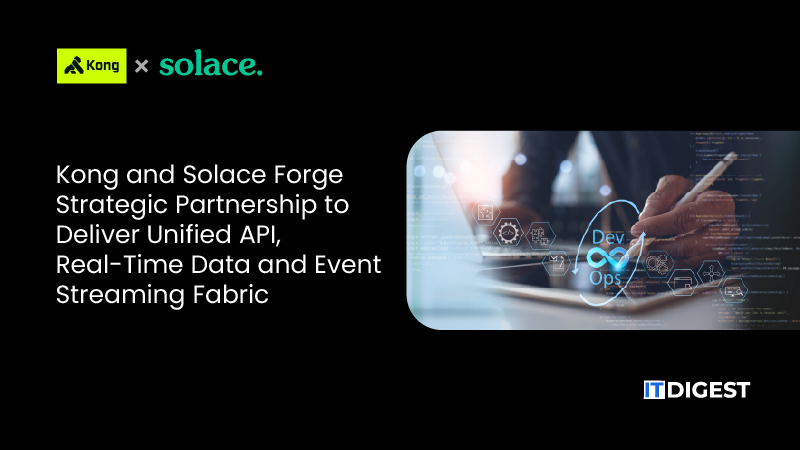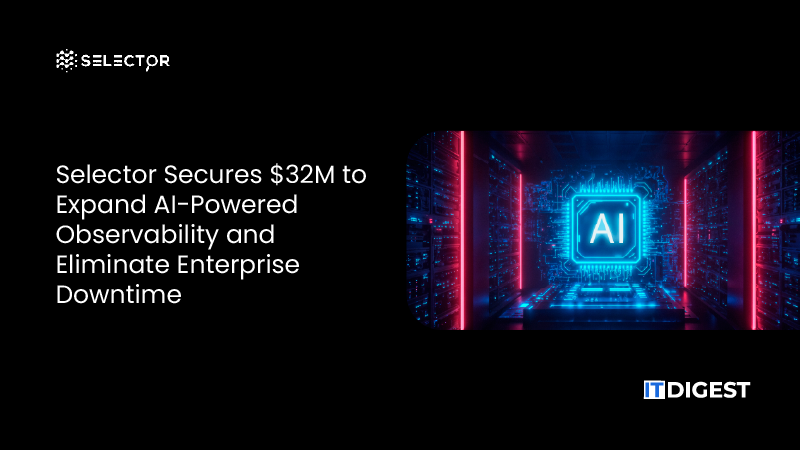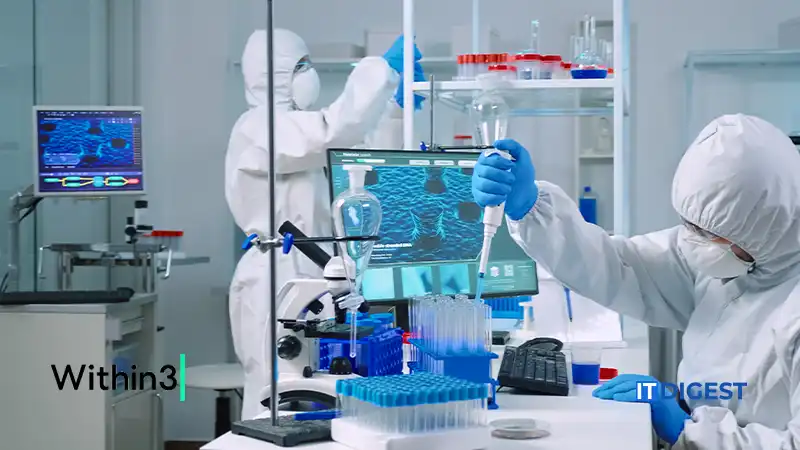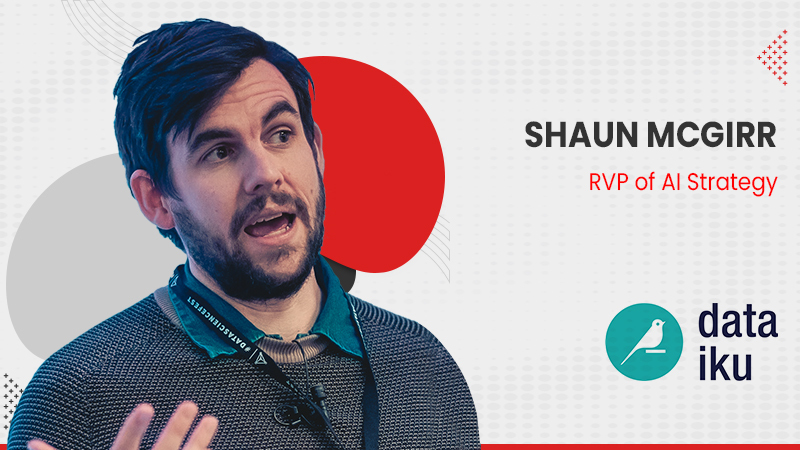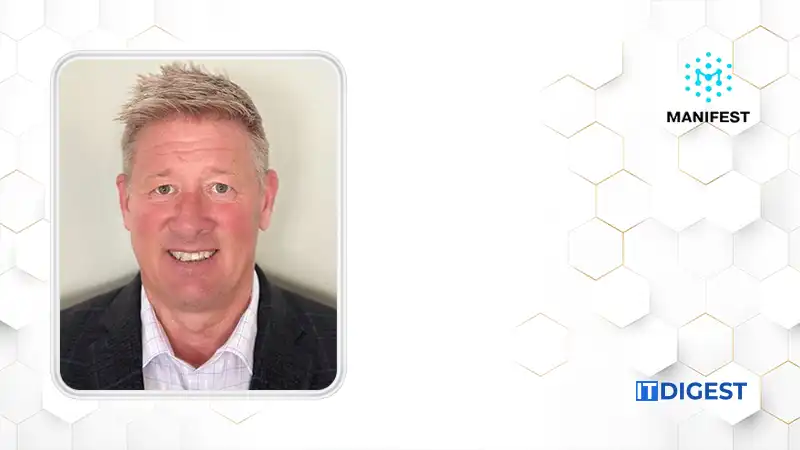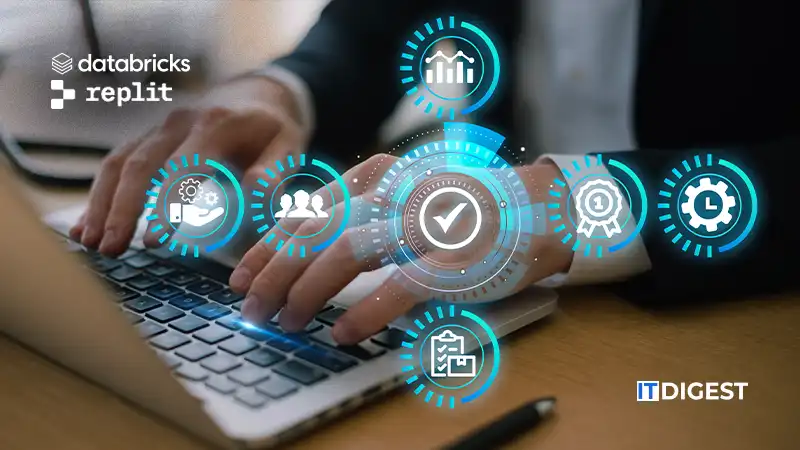“Things that happen 35% of the time, happen ALL the time”
Hi, Shaun, can you give us a background of your professional journey, how has it been so far?
My professional journey started right between high school and university when I had a two-week holiday job. Someone handed me two printed lists of numbers, and asked me to work out which numbers on list A were not on list B. I started with a pen, asked for the files on a computer, worked out how to automate that task in Excel, and never looked back! My academic background is in political science and my PhD from University of Michigan joined together my subject matter interest, and my data skills. I finished that work just in time to catch the data science “wave” and monetise those hard-earned skills in consulting in New Zealand, then in London since 2016, as a data scientist and later a data team leader in the automotive industry. In 2021 I joined Dataiku as an AI Evangelist.
Tell us about your role at Dataiku.
I now lead a team of AI Evangelists and Strategists for the EMEA region of Dataiku. We are data, digital and AI practitioners and leaders by background, who have been in the shoes of users of our platform, and those leading and funding such teams. This helps us join up the story of how Dataiku will transform individuals, teams and organisations, across the many different personas who need to get on board with Data & AI to make it a value driver for business. Each path to that goal will be slightly different, so we listen carefully to what our customers are saying (and not saying) and help them understand the full opportunity of applying AI to their data, what pitfalls they need to plan for, and how Dataiku helps them win.
What sets Dataiku apart from the competition?
The most distinctive thing about Dataiku is that we truly enable people of many different skill levels to become builders of AI, not just consumers. Many promise that today, but it was our founding assumption in 2013. It might seem obvious that a set of technologies with such power could only reach its full potential (and safely), if it loses its connotation of white lab coats, killer robots and heroic writers of complex code. But public perception is still stuck there, and sadly many in business are stuck in “magical thinking” about what AI is good for, how much it costs, and who should build it. When I see users with no prior experience working with AI, use Dataiku to answer a question that has vexed them, in a single afternoon…well that is magical.
Also Read: IT Digest Interview With Marcus Merrell, VP of Technology Strategy, Sauce Labs
How would you describe AI’s evolution and its importance in today’s time?
AI has a long way still to evolve, it is really still in its teenage years. After initial flurries of progress in the mid-20th century, it took the 21st-century explosion of data, and the means to process it more cheaply, to get out of the lab and in to business. I say “teenage years” because now AI is so much more capable in its potential impact, but does not yet understand the world, nor the impact it could have, both positively and negatively. For it to grow up, AI needs to find ways of fitting in to society, business, and our everyday lives that make all those things more valuable. And just like human teenagers growing up, that involves becoming a bit boring, just another set of technologies to solve human, societal, even environmental problems.
After the COVID-19 pandemic businesses are speeding up their digital transformations. In digital transformation what is the role of Data and AI?
It’s a great question, because in many organizations these things exist in separate siloes. There might be many different data teams, doing everything from architecting data flows, building the pipelines, turning that data into something useful for the business. But only a subset of those might be applying AI to generate new kinds of value, and they may not even work closely with the rest of the data teams! And then a digital transformation programme may exist entirely separately, perhaps trying to deeply change the very processes that data teams are also trying on to improve…but not communicating with each other.
The positive story here is that each makes the other better, in symbiosis: digital transformations often fail because the data they are supposed to leverage and generate, is not fit for purpose (but data teams can solve this) and likewise, many things data and AI teams build fail to make impact because a dashboard, an API are very easy to ignore (wheres digital transformation puts these insights in to action at scale)
Can AI help in changing customer interactions? What does the future with AI for customer engagement look like?
Some of our most successful customers have used AI precisely to change customer interactions in transformative ways. They do that by building towards a broad ambition (e.g. making the customer feel appreciated and understood, as if the data they exchange builds a better experience) but deliver that vision through many small innovations.
For example, multinational insurance company Aviva, uses Dataiku as the foundation of ADA, it’s “Algorithm Decision Agent” which is not one monolithic chat-bot, but a collection of AI-powered data products operating around the customer lifecycle to increase personalization. Leaders like Aviva moved quickly beyond the “chatbots for everything” phase of AI for customer interactions (although these are still relevant!) and use AI broadly but you don’t have to be a giant. Another customer MandM Direct is an online retailer with a five-person data team using Dataiku to deliver recommendations, discounts, improving customer service, and anticipating shipping delays.
How does an effective AI strategy ensure that the information growth adds to the business value and growth?
Too much data is still being collected with the mindset “surely someone will find something to do with this later” and this doesn’t only create regulatory risk, it can simply be a colossal waste of time and money. While the cost of capturing, storing and processing data has dropped exponentially thanks to cloud computing, that technological justification is not enough to automatically generate business value. At its worst, this mindset leads to a constant, rolling decision to “just get a little more data” and “just make it a little better quality” before building anything that creates impact and value.
Nobody can afford that approach in the long run, especially not in recessionary times. Our message is that every business can create new value from data they already have, and if that data is valuable, the business case to collect, store and process more writes itself. In short, the most effective AI strategy is the one that gets you building fastest, to learn what is valuable, discard what is not, and iterate.
We are soon to enter 2023, according to you, what will be the biggest data science trends in 2023?
I’m excited how much the tone of discussion with customers has changed, about the need to get more people involved in AI initiatives. Even 18 months ago when I joined Dataiku, the idea that there is a huge untapped data work force out there in every organisation, who can really benefit from access to new techniques and possibilities, was still a bit radical. I think economic conditions are forcing every body to find tomorrow’s data & AI champions within their own ranks, and invest in making that happen, not just the underlying technology like Dataiku but the training, support, and reward that motivates people to upskill on the job.
As you are a data geek, what is your favourite “Data” quote? Or do you have your own quote?
Now you’ve given me permission to quote myself, how could I resist? Back in 2018, long before working here, I was interviewed for a Dataiku film called “Data Science Pioneers”. In it I coined the phrase “things that happen 35% of the time, happen ALL the time”. I was responding to the question: why did nobody predict Trump’s victory in 2016? In fact, the models that got closest gave him about a 35% probability of winning, which is hard for us to interpret for an event with only one winner. But we see similar predictions often (weather, markets) and so should not be surprised when roughly 35% of the time, those things come true!
What would you like to advise all the data geeks out there who wish to have a career in data science?
Build, build, build. When I was hiring data scientists and data analyst in my previous role, it was so hard to find people who could actually demonstrate what they had built. Some blamed it on working in a confidential setting, so they could not share what they had built. To those candidates, I recommended they take a question they care about (any question), gather some appropriate data, and build something that gives any kind of defensible answer. When you are applying to roles, simply having something you built, which you can show and explain who and why you built it, immediately makes you stand out.
Thanks, Shaun!
Shaun McGirr is a data leader with experience across official statistics, academia, consulting, and data science in a large automotive services company. He recently achieved minor stardom in a documentary Data Science Pioneers, coining the phrase “things that happen 35% of the time, happen ALL the time” to explain why quite likely outcomes are often dismissed out of hand. Shaun believes the toughest part of doing data well is finding the right questions and ensuring the answers will actually push a lever to change the world, a theme developed further in his podcast Half Stack Data Science. At Dataiku, he helps customers and colleagues identify and articulate the value of putting data science in the hands of everyone.
Dataiku is the platform for Everyday AI, systemizing the use of data for exceptional business results. By making the use of data and AI an everyday behavior, Dataiku unlocks the creativity within individual employees to power collective success at companies of all sizes and across all industries.







